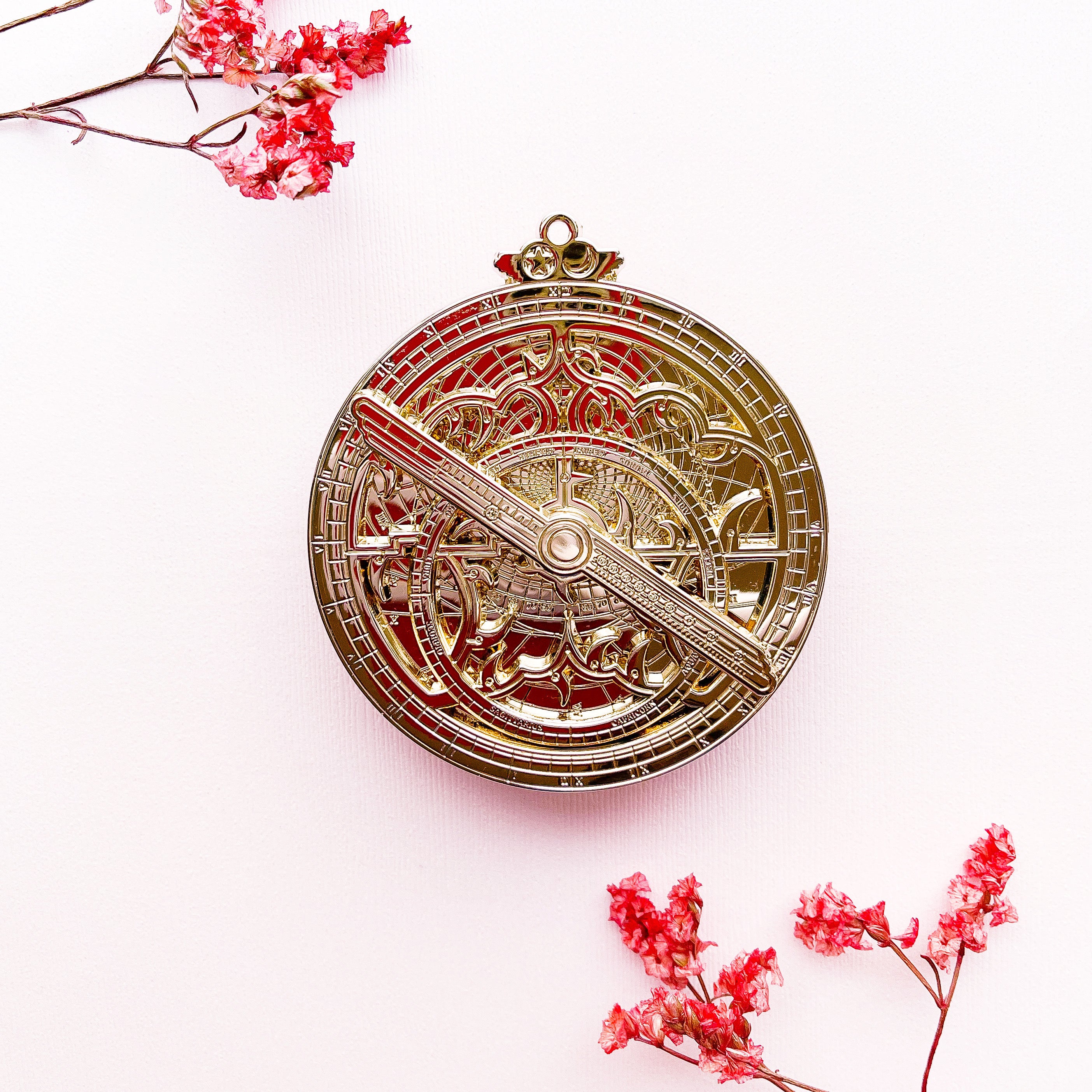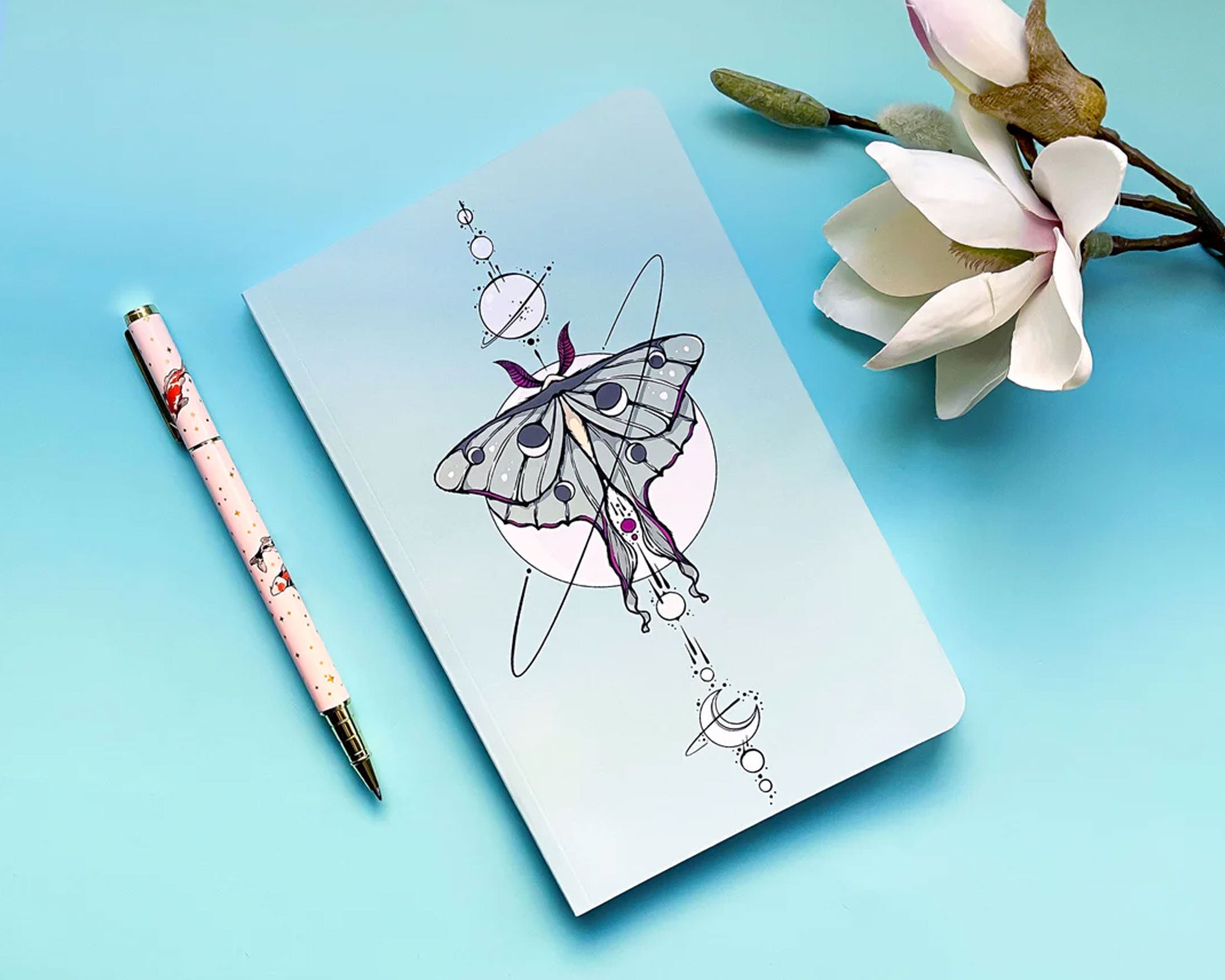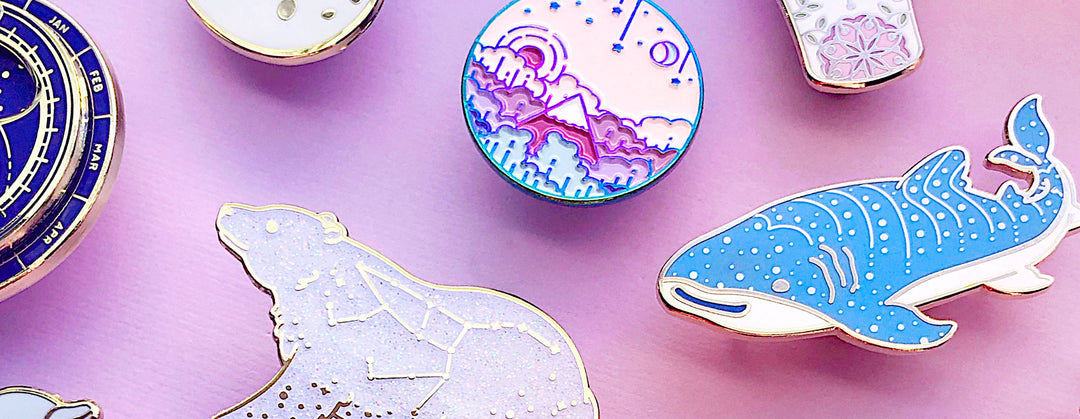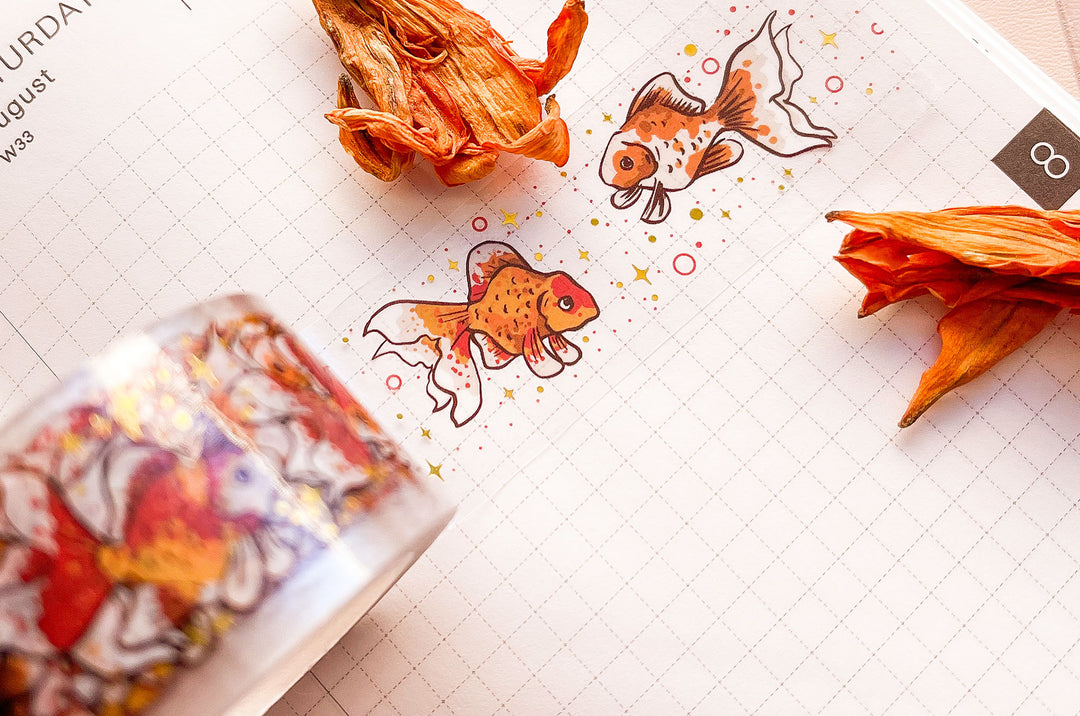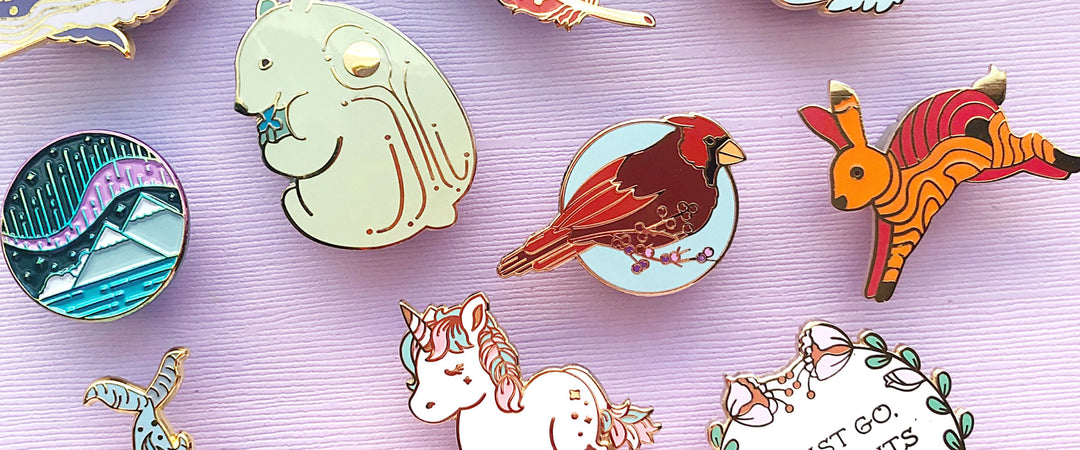Polishing Enamel Pins
Like all plated jewelry, pins will inevitably tarnish over time. This is a temporary condition and is resolvable.
Depending upon the metal used for plating your pins, some may tarnish a little faster than others. Generally, I have noticed copper plated pins and rose gold plated pins tarnish a little faster than other metals. Silver tarnishes a little bit faster than gold plated pins and I have yet to see a duochrome plated pin tarnish, but these are pretty new to the market at the time of this writing.
Do not polish soft enamel pins and use a soft cloth or non-abrasive polishing cream on hard enamel pins. Being too rough while polishing your pins can strip the plating from them. You may also risk damaging the enamel on a pin by being too rough while polishing it or using abrasive polishing agents.
There are a lot of jewelry polishing pastes available and many of them are non-toxic and environmentally friendly. Look for polishing creams that are non-abrasive and gentle. Use the paste sparingly and always use a soft microfiber cloth to wipe off the past afterwards. If you prefer a polishing cloth instead, you can look for high quality polishing cloths that are gentle and can be reused such as the Selvyt cloths.
Most hard enamel pins come out shiny and beautiful after a polish, but the key is to be gentle and to test any polish on a small part of your pin before polishing the whole thing. To test a polish on a small part of your pin, I recommend getting a small amount of the polish on the end of a cotton swab and apply the polish to a small area then use the clean end of the swab or a microfiber cloth to rub off the polish.
If you are in a pinch or can't get ahold of a polishing cloth or polishing cream, I have heard some people polishing their pins using toothpaste or with a baking soda and water bath. I haven't tried this myself so I cannot vouch for its effectiveness or safety for your pins. Make sure to always be gentle cleaning your pins and use soft cloths and materials to polish and wipe them.
There are some things you should probably avoid using on your pins because they are too harsh or can damage various parts of your pin. The following are some of the things you should avoid...
- Do not use a polishing machine or a polishing bath on your pins. This can damage the enamel and ruin your pins.
- Do not use a chemical cleaner or household cleaner to clean your pins. These tend to be harsh on the enamel and may damage it.
- Do not use a citrus or vinegar solution to clean your pins. This will damage the enamel.
- Do not use abrasive materials to polish your pins. Abrasive materials can include rough brushes, chemicals or sponges. These materials can strip the plating from your pins.
Once the tarnish is removed from your pin, the amount of time the shine will last depends on a wide variety of environmental factors including humidity, how often they're handled and how they're displayed or stored. All plated jewelry, even after a polish, will tarnish again over time and will need to be polished again to restore their shine at some point in the future.
If you are not displaying your pins or don't want them to tarnish as quickly, keep them in a dry environment and handle them minimally. Wash your hands before and after handling your pins, make sure you don't get any perfume or lotions on your pins and wipe them with a clean cloth after handling them. Silica gel packs can be also used to slow down the rate of tarnishing.


